
A drug epidemic is quietly tightening its grip around Imphal, a city recently ravaged by ethnic violence. The allure of the drugs now extends well beyond the youth of Manipur, and has ensnared even the government employees besides others. A report by Tehelka SIT
Upon arriving at Imphal airport, inquiries with local taxi drivers reveal insights into areas where drug-related issues are prevalent. When prodded, they mention neighbourhoods like North Aoc, Kshetrigao, Lilong and Top Heikhru Makhong. These areas, according to them, are a few hot spots of the city where drugs are easily available.
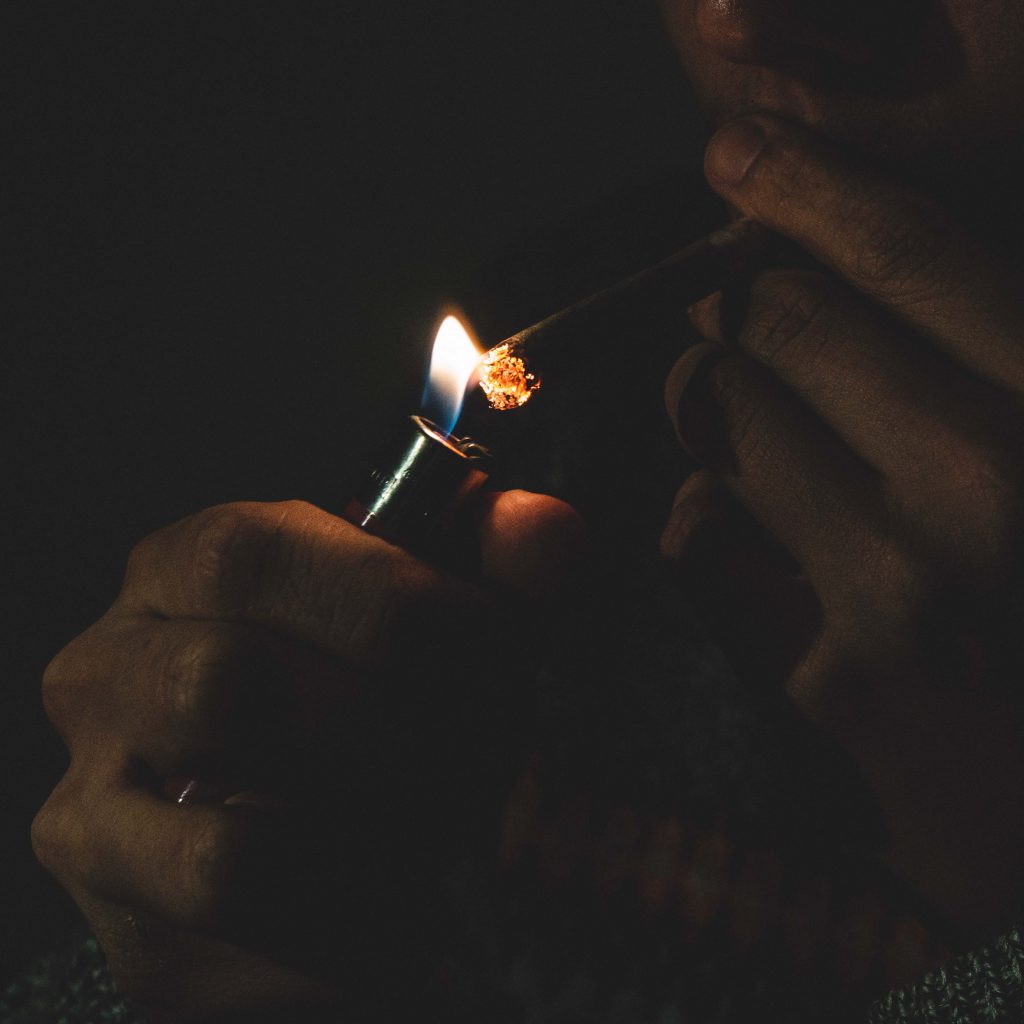
A taxi driver also shared another revealing insight with us: when you arrive at one of the aforementioned locations and request “Heroin number 4,” which is the popular term for the fourth-stage drug extracted from poppy, peddlers will try to ignore your query. However, the moment you signal with four fingers, they immediately understand that you are a regular customer and would promptly supply the drug. Sources familiar with the drug trade in Manipur informed Tehelka that these days, “Heroin number 4” is the most sought-after drug in Imphal.
Based on our investigative findings, it becomes evident that the allure of this drug extends well beyond the youth of Imphal, capital city of Manipur, which has been struck by ethnic violence during the last couple of months. Tehelka also unearthed a disconcerting reality: a substantial number of state government employees, including engineers, contractors, clerks, and worryingly teachers—who are entrusted with the responsibility of spreading awareness against drug abuse —are also falling victim to heroin addiction. Sources indicated that approximately 10-15 government employees sought treatment at a drug rehabilitation centre in Imphal. “We do not have precise figures for other rehabilitation centres in Manipur,” sources added.
The ongoing crisis in Manipur has unveiled one of the most significant non-traditional threats to India’s internal security, taking the form of narco-terrorism. The Government of Manipur’s “War on Drugs” has laid bare the presence of a formidable drug cartel and their pervasive influence on the social and political fabric of Manipur.
During the investigations, we learnt that drugs have made deep inroads into Manipur society. Not only youth and those working in private firms are buying, using and selling drugs, but even the state government employees, including teachers — who shoulder the responsibility of shaping the future of our country — are not immune to drug use either.
To get to the bottom of what went wrong in Manipur, Tehelka spoke exclusively to Dr Stalin Oram (name changed), a medical officer at a drug rehabilitation centre in Imphal, one of the many operating in the city.
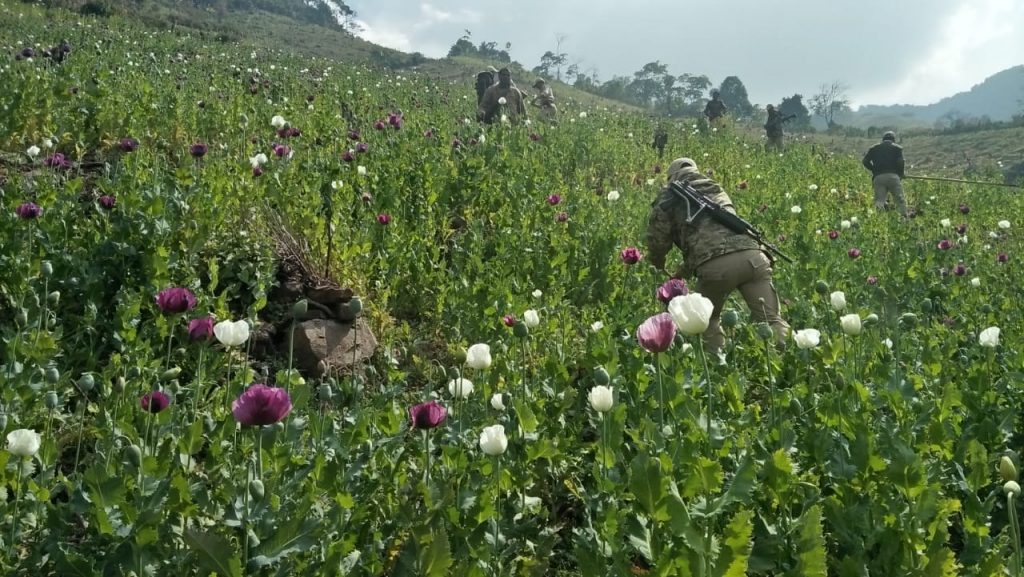
Dr Stalin Oram (name changed) shared his experiences of treating 10-15 Manipur state government employees who had been battling drug addiction for an extended period. And this is a figure from a single rehabilitation centre.
Also, in an exclusive interview, Rajesh Raj (name changed), a science graduate who struggled with drug addiction for five years beginning in 2016, revealed his journey to recovery. He explained how with the assistance of an NGO and a rehabilitation centre, he successfully overcame his drug dependency. Today, Rajesh Raj is not only leading a drug-free life, but is actively engaged in drug prevention efforts as a member of an NGO.
While informing that he has treated many clients at his centre, Dr Stalin expressed concern over the fact that many Manipur state government employees are also hooked on drugs. Reports about Manipur state government employees getting into drugs were thus corroborated by Dr Stalin Oram, incharge of a rehabilitation centre.
Reporter: From which background do these drug addicts come from?
Dr Stalin: It varies. We have seen people from all walks of life, from extremely poor labourers to very educated individuals, including government employees turning to drugs.
Reporter: Even government employees are taking drugs?
Dr Stalin: Yes, unfortunately. Drugs can affect anyone, regardless of age, sex, or background. They don’t discriminate.
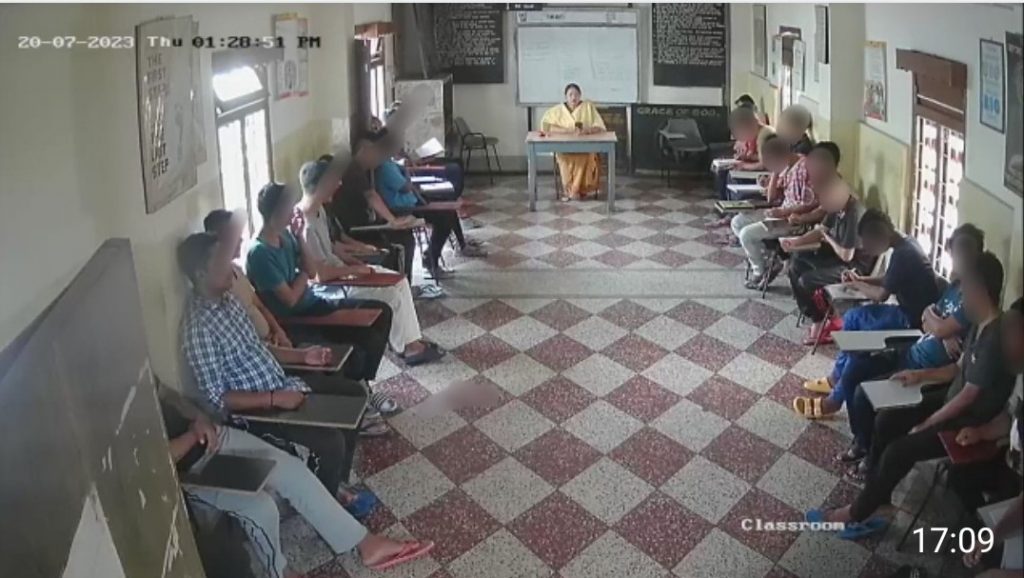
[Dr Stalin told us that drug addiction is a major problem in Manipur. It affects people from all walks of life — from labourers to educated individuals to government employees. Stalin first hesitated but later revealed that he has treated even Manipur state government employees at his centre]
Dr Stalin went on to reveal that government contractors, engineers, clerks and, alarmingly, even teachers, in significant numbers, are involved in drug use.
Reporter- Were the government servants you treated from the Centre or the State?
Dr Stalin- Mainly from the state government offices.
Reporter- So how many government employees you have treated at your rehabilitation centre so far?
Dr Stalin: In one year of my tenure at the rehabilitation centre, I guess I have treated about 10-15 government employees, including teachers, engineers, contractors and clerks.
Reporter: What positions did these employees hold?
Dr Stalin: As I mentioned earlier, they encompassed engineers, contractors, and teachers, with most being from teaching profession.
[Dr Stalin confessed that in one year of his service at the rehabilitation centre, he had treated around 10-15 employees, mainly from the state government, with none belonging to the central government. ]
Dr Stalin voiced concern for Manipur’s youth falling prey to drugs, considering that they are the future of both the state and the country.
Reporter: Is the drug addiction among government employees a major issue in Manipur?
Dr Stalin: Of course. It is a major problem, not only for government employees but for any individual. When you cannot focus on your work, it causes harm to yourself and to the entire society. While on the one hand, government employees are succumbing to the lure of drugs, on the other hand, youth are also becoming victims of substance abuse. This is a big problem. My area of concern is the youth, sir, because the future of the state and the country depends on them.
Reporter: We hear even women are taking drugs?
Dr Stalin: Indeed. There are some centres in Manipur that specifically cater to women. Not mine, but there are some other centres.
[Beyond government employees in Manipur, Dr Stalin disclosed that even women in the region are falling victim to drug addiction. He noted that there are a few drug rehabilitation centres in Imphal that specifically cater to women.]
As the talk progressed, Dr Stalin told us that the prices of drugs had gone up since the ethnic violence broke out in Manipur. This is because the drugs are not coming easily from Myanmar into Manipur due to the violence. Previously, drugs were readily available on the streets of Imphal. However, after the violence, drugs are scarcely available, and when they are, it’s at a higher price, he said.
Reporter: What is the present situation of drugs in Manipur?
Dr Stalin: Over the past four months, the situation in the state has been chaotic due to ethnic violece. As a result, the cost of drugs has gone up because of its limited availability. The drugs have to come from the main border areas, such as Myanmar, Moreh, and Churachandpur, which have been difficult to access. As a result, though drugs are available, they are very expensive.
Reporter: So what are the drug’s current and previous prices?
Dr Stalin: The price of 1 gram of drugs is around Rs 400 to 600 at present, which is much higher than the previous price of Rs 150 to 200. Drugs were easily available at some hotspots in Imphal city earlier, but it is no longer the case.
[Dr Stalin disclosed that after the violence broke out in Manipur, it has become difficult to get drugs in Myanmar. This has led to an increase in the price of drugs, which one can still get with some difficulty on the streets of Imphal, but at a much higher price than before.]
Dr Stalin nows opines that the Manipur government’s war on drugs is not enough. The government is trying to rein in the drug trade, but the drugs are still coming into the state from Myanmar through the porous border. He said that now heroin is more in demand than cocaine.
Reporter: What are the police doing to control the drug menace in Manipur?
Dr Stalin: The current government has waged a war on drugs to curb this menace, but it’s a daunting task. On the one hand, the police are trying to control the supply of drugs, but on the other hand, the drugs are still coming in from the border. The border is not sealed, and the drugs that are coming in are of the best quality. Heroin is the most popular drug now, even more popular than cocaine. Heroin is also more expensive than cocaine.
[According to Dr Stalin, because of the porous border, war on drugs in Manipur by the government and the police is not yielding results. He said that demand-wise, Heroin has long overtaken cocaine in Manipur]
According to Dr Stalin, the longstanding issue of poppy cultivation in Manipur’s hills has been jeopardizing the future of the state’s youth. He highlighted the helplessness of civilians who, he argued, cannot venture into the hills to eradicate these illegal crops. According to him, it falls upon the government to address this problem by implementing stringent deterrent laws.
Reporter: What is your take on the issue of illegal poppy cultivation in Manipur?
Dr Stalin: As we all know, sir, poppy cultivation has persisted in Manipur for many years now. It’s a situation where neither you nor I can personally venture into the hills to halt these plantations. Therefore, it is the duty of the incumbent government to enact effective laws to eradicate this cultivation at any cost, considering the immense risk it poses to the future of our youth.
[Dr Stalin emphasised the urgent need for government intervention to combat the persistent problem of illegal poppy cultivation in Manipur’s hills, recognizing the severe threat it poses to the state’s youth. ]
While talking about his drug rehabilitation centre, Dr Dr Stalin said that in last 20 years, 11000 patients have been treated at the centre. The success rate is 41%. However in some cases the patients after recovery goes back to drugs again.
Reporter- Dr Dr Stalin, do you keep track of patients after they leave your rehabilitation centre to see if they are living normal lives or have relapsed?
Dr Stalin: Yes, we do. We have a routine follow-up system in place. We either visit their homes or they come to us. We also have telephone conversations with them. Of the 11,000 patients we have treated in the past 20 years, we have been conducting evaluations for the past 2 years. For these 11,000 people, the recovery rate is 41%. That means 41% of them are doing well, but there is a chance of relapse for the others. We call them for counseling sessions along with their families and encourage them to return to the rehabilitation centre for further support.
[In the conversation, Dr Stalin, a drug rehabilitation expert, discussed about the drug issues in Manipur and the challenges of rehabilitation. He also talked about the importance of follow-up care for recovering addicts.]
Now, Dr Stalin explains the varying admission durations at his rehab centre: two months for new clients, one month for second-time clients, and 3-4 months for those abandoned by their families.
Reporter: What’s the minimum duration of admission at your rehabilitation centre?
Dr Stalin: It depends. For first-time patients, it is two months. For patients who have been to the centre before, it is one month. However, patients who are neglected by their families can stay for 3-4 months.
[ Dr Stalin emphasized the importance of tailoring the length of stay to the individual patient’s needs. He stressed that some patients may need more time to recover than others. ]
Now, Dr Stalin reveals how he treats the drug addicts and efforts he make to reduce withdrawal symptoms among them.
Reporter: What is the method of treating drug addicts?
Dr Stalin: We use a detoxification program. We give them prescribed drugs to help them withdraw from the drugs they are addicted to.
[ Dr Stalin emphasized the importance of detoxification in the treatment of drug addiction. He said that it is the first step in the recovery process and that it helps in reducing the withdrawal symptoms.]
Dr Stalin now talks about how patients can become violent and aggressive during withdrawal, and how it can become difficult to control them.
Reporter- How tough it is to treat them? Tell me any incident when you were abused while treating them?
Dr Stalin–I have never come across any type of abuse as such…but yes when a patient suffers from withdrawal it is difficult time, as the patient becomes little a bit wild and aggressive so it become a little bit hard to control. So we have to hold legs or hands.. but I have not been abused.
[ Dr Stalin discussed the challenges of treating drug addicts. He stressed upon the importance of patience and understanding when treating drug addicts, even when they become violent or aggressive during withdrawal.]
After Dr Stalin, a medical officer, shared his experiences at his rehabilitation centre in Imphal, we caught up with Rajesh Raj (name changed), a science graduate who struggled with drug addiction for five years, beginning in 2016. While revealing his journey to recovery, he explained how with the assistance of an NGO and a rehabilitation centre, he successfully overcame his dependency on drugs. Today, Rajesh Raj is actively engaged in drug prevention efforts as a member of an NGO while leading a drug-free life himself.
While sharing experiences of his life as a drug addict, Rajesh claimed that while taking drugs he was caught several times by the police. However he managed to bribe his way to freedom every time he fell in the police net.
Reporter: Were you ever caught by the police?
Rajesh: Yes, I was arrested 2-3 times by the police. But I managed to bribe my way out every time.
Reporter: How much money did you pay?
Rajesh: The narcotics police arrested me once. I paid them Rs 3,000, and they let me go. I always paid the police, so there is no case against me.
[ Rajesh disclosed that when he was taking drugs, he was caught several times by the police. But every time he was let off after he paid money to the cops. He said that there was no case pending against him.]
Rajesh now disclosed the amount of drug he used to consume. He said that he consumed 2 grams of drug every day, which cost him Rs. 1,000. He said that he quit drugs after realizing the financial and health costs of his addiction.
Reporter: How much drug did you consume every day?
Rajesh: Two grams. It cost me around Rs. 1,000.
Reporter: Why did you quit?
Rajesh: I realized that it was costing me too much money. I was also starting to get sick. I decided that it was time to get my life back on track.
[Rajesh said that quitting drugs was difficult, but it was worth it in the end.]
Rajesh explained that in 2016 he had a job, and that’s how he was managing to buy drugs for himself.
Reporter: How did you afford the drugs?
Rajesh: I had a private job in 2016, so I had the money to purchase drugs.
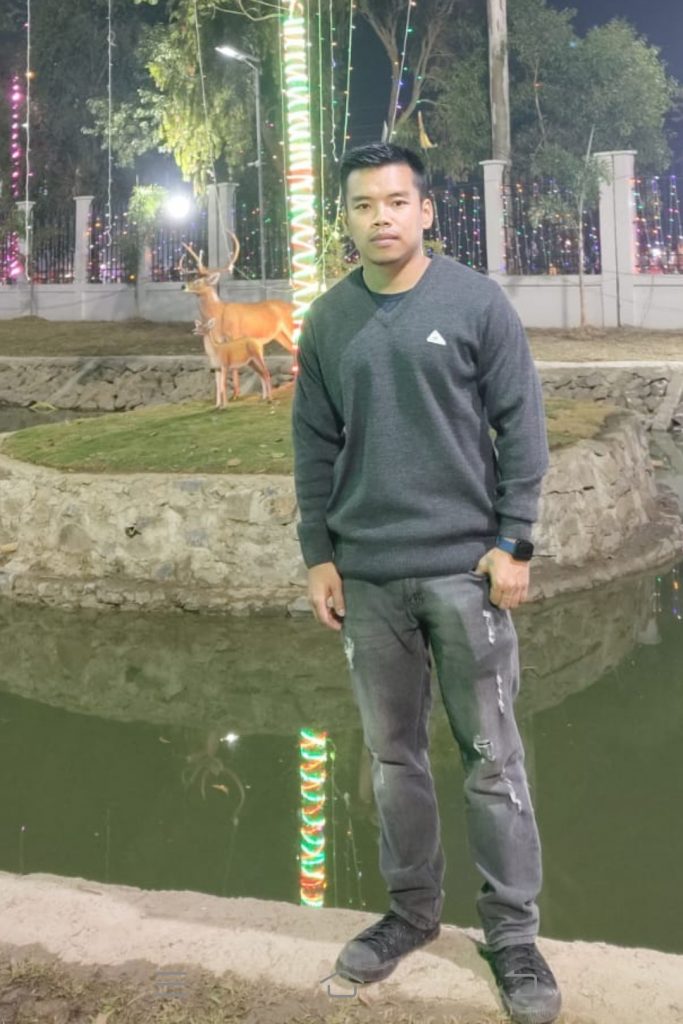
[Rajesh clarified that his employment in 2016 provided the financial means for his drug purchases during that time.]
Now, Rajesh disclosed the name of the drug he was using, the source from which he was obtaining it, and the friend who was supplying it to him.
Reporter- Which drug you were taking?
Rajesh- I was taking opium. But now I am off-drugs… I took opium for around 4-5 years..
Reporter- You took heroin?
Rajesh- Opium is Heroin in Manipur. I used to buy from BOC area, a red light area of Imphal. It is a market. My friend also sometimes supplied drugs to me.
[While remembering his drug days, Rajesh disclosed he used to take opium, which he would buy from a market in Imphal.]
Rajesh said that he started taking drugs in 2016 after his father married another woman, and stopped living with him and his mother..
Reporter: What led you to start using drugs?
Rajesh: When my father married another woman and stopped living with my mother and me, it had a significant impact on me. My mother stayed with me, and my father only occasionally visited home.
[Rajesh explained that he turned to drugs in 2016 after his father remarried and moved away from him and his mother to live with his second wife]
“How did he overcome his drug addiction?” In response to this question, Rajesh said that he successfully battled addiction with the support of an NGO, underwent therapy at a drug rehabilitation centre, and is now completely drug-free. In fact, he said that he was also working with an NGO to help other people who were struggling with addiction.
Reporter- How did you leave drugs?
Rajesh – I met some kind of NGO… which helps those who want to give up drugs. I got therapy at XXXX society. Now, I am providing my services at the same NGO ….I am working there as au pair educator.
[Rajesh’s journey from addiction to recovery also serves as a testament to the transformative power of rehabilitation and support from NGOs. His story highlights the possibility of rebuilding one’s life after battling addiction.]
After speaking with Rajesh, we met Azharuddin Sheikh, another MBBS doctor hailing from Manipur. Azharuddin echoed Rajesh’s concerns, pointing out that a growing number of government servants in Manipur were grappling with drug addiction. He emphasized that it wasn’t just limited to government employees; many young individuals, including Muslims, in Manipur were also succumbing to drug dependency.
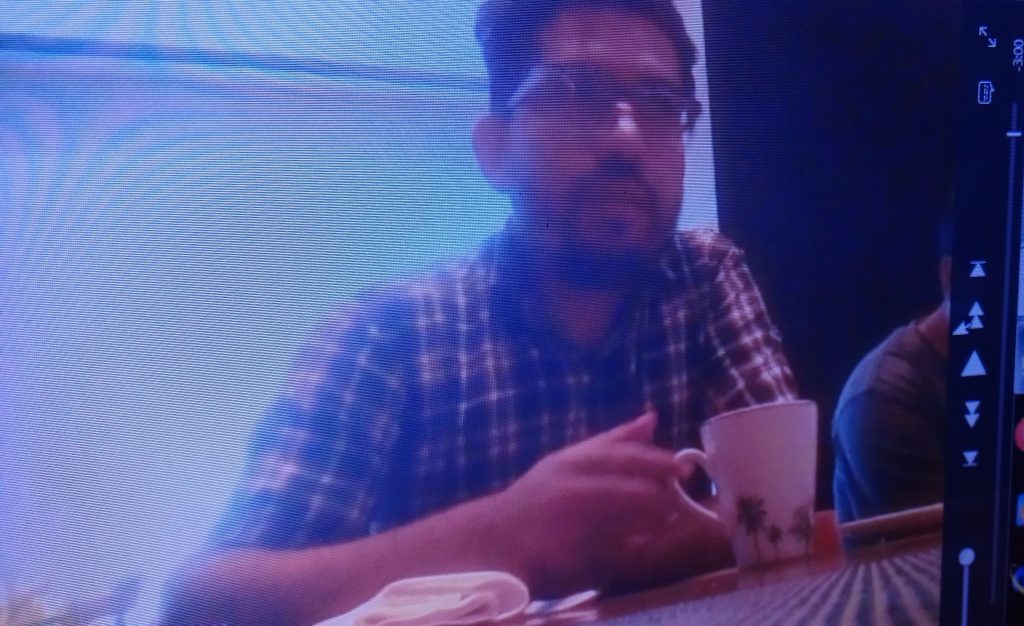
To address this issue, Azharuddin highlighted the efforts of an organization called Anjuman, which runs a rehabilitation centre in Imphal that helps Muslim youths overcome drug addiction. Azharuddin also said that some Maulanas were also working tirelessly to prevent young people from falling into drug addiction. They are encouraging these youths to engage in Jamaat (religious preaching) activities in order to divert their focus away from drugs.
Reporter- Accha kis level k log wahan drug addict hain.. Manipur mein.?
Azhar- Addict wala to youth hi hai…haan bahut..Muslim mein thoda kam hua hai…matlab maulana log pakad- pakad kar, ek organization hai Anjuman ..maulana log pakad kar usko sahi kar rahe hain..
Reporter- Accha Muslims ki organization hai… kya naam hai ?
Azhar- Anjuman..wahi log kaam kar raha hai..uske opar.
Reporter- Maine suna hai employee bhi drug addict hai..?
Azhar- Haan ..bahut kam percentage hai..
Reporter- Wahan drug rehab centres bhi honge.?
Azhar- Haan wo to hain..
Reporter- Kitne honge..?
Azhar- Muslims k to 2-3 hain aur Meiteis k to uncountable hoga…
Reporter- Muslims kay apne drug rehab centres hain..?
Azhar- Haan..Leilong kay ander hamara ek hai..
Reporter- Wo centre ka hai ya state ka..?
Azhar- Wo Anjuman…Muslim wala, wahan sare Muslim ladke aatey hain…wahan unka Ilaj hota hai…phir jamaat mein bhejtey hain…
Reporter- Jamaat mein kya sikhatey hain.?.
Azhar- Matlab wo deen ka, namaaz padhna, drug lena gunah hota hain ye sab batatey hain…
[While confirming that the many government servants of Manipur state are indeed suffering from drug addiction, Dr Azharuddin Sheikh praised the role Anjuman, a rehabilitation centre, for helping Muslim youth in overcoming drug addiction]
Dr. Azhar then shed light on the operational intricacies of the drug trade in Manipur. He explained that in the hills, poppy cultivation is primarily carried out by the Kukis. Once the poppy reaches the plains, the illegal drug trade is jointly managed by both Meteis and Muslims.
Reporter- Accha poppy cultivation karte hain Kuki..?
Azhar- Haan ..khatarnak kartey hain, matlab deforestation karke.. pahadon pe 80 percent to kar diya wo…matlab kukis…habitant area mein poppy cultivation kar diya..plain mein Muslim aur Meitei karta hai…cultivation hota hai pahad mein..harvest honey k baad plain mein aata hai.
Reporter- Plains mein kaun sambhalta hai ?
Azhar- Meiteis aur Muslims.
[Dr. Azhar explained how the drug trade operates in Manipur. He said that poppy cultivation is done in the hills by Kukis. The poppy is then transported to the plains, where it is processed and sold by Meteis and Muslims.[
Next, Tehelka interviewed Mohammad Wasim, another MBBS doctor from Manipur, who corroborated the observation regarding drug usage among government employees in the state. He revealed that this issue extended beyond government servants adding that even some doctors themselves were involved in drug consumption. Wasim emphasized that anyone, regardless of their profession, could fall into the trap of drug dependency.
Reporter- Accha muje koi bata raha tha Manipur mein jo government servants hain.. wo bhi drug addict hai.?.
Wasim- Haan …Wo to hai…hamara doctor bhi drug addict hai.
Reporter- Doctor bhi ?
Wasim- Haan…har aadmi ki aadat hota hai…kisi k bare mein kuch nahi keh sakte, doctor bhi aadmi hota hai..
Reporter- Manipur mein doctor bhi hai drug addict ?
Wasim- Haan hai..
Reporter- Aur government servants ?
Wasim-Haan – Haan hain bahut saara.
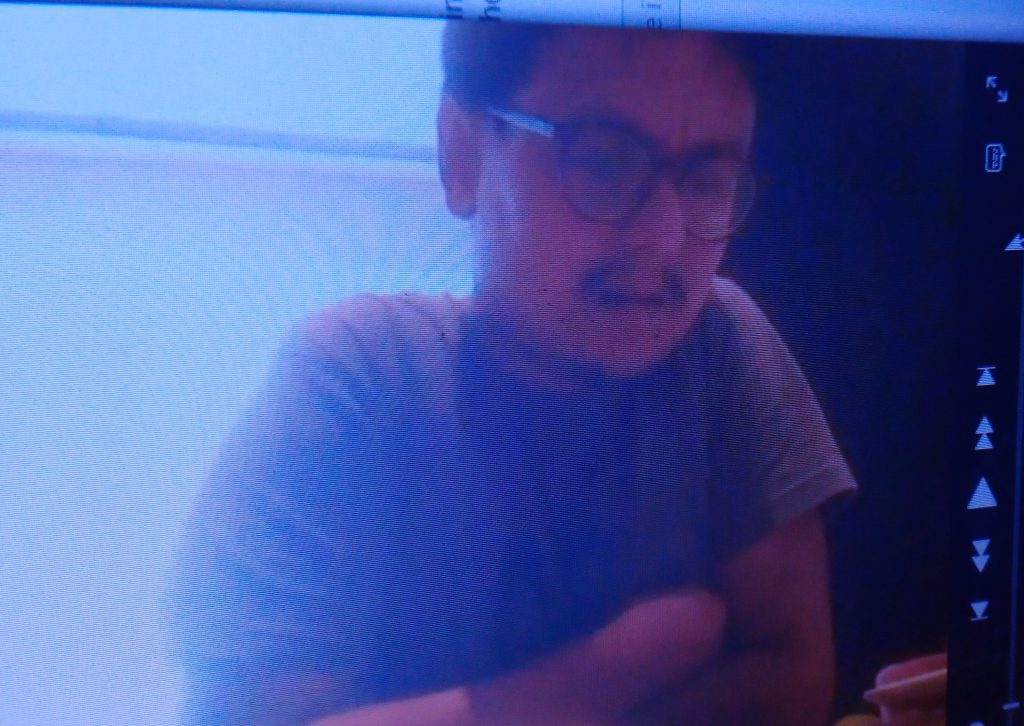
[Dr. Mohammad Wasim affirmed the presence of drug usage among Manipur state government servants. He pointed out that this issue extended beyond government employees, as some doctors had also succumbed to drug abuse. He emphasized that drug addiction could affect anyone, irrespective of his status and background]
Wasim then shared with the reporter that he had been observing the drug abuse situation in Manipur since 2013, even before completing his MBBS.
Reporter- Aap kab se dekh rahe ho drugs ko Manipur mein..kis age se?
Wasim- Jab hum….2013 se dekh rahe hain..MBBS complete karne se pehle.
[Now Wasim told reporter that since 2013, before completing MBBS, he has been watching Manipur getting mired in drug issues.]
Meanwhile, Bikramjit Rajkumar, an activist from Manipur, told Tehelka that drug use among state government employees and Manipur police personnel was widespread. He claimed that even some state police personnel had also succumbed to addiction.
According to Bikramjit, while many of his childhood friends are involved in drug use, one of his friends has successfully overcome addiction with the assistance of an NGO. “He managed to break free from drug addiction through therapy at a drug rehabilitation centre,” he said.
He further revealed that the drug pouch which was easily available on Imphal streets earlier was hard to obtain now. “The supply has been badly affected after ethnic violence broke out in Manipur, with the result that purchasing a drug pouch would now burn a hole into your pocket,” he said.
According to Dr Dr Stalin Oram, there 20 rehabilitation centres in Imphal alone, while there are more than 100 in Manipur. This indicates how serious the drug issue has become in the state, which is affecting government employees, teachers, and other professionals. If the problem is not addressed, it will have a devastating impact on the state’s future.












